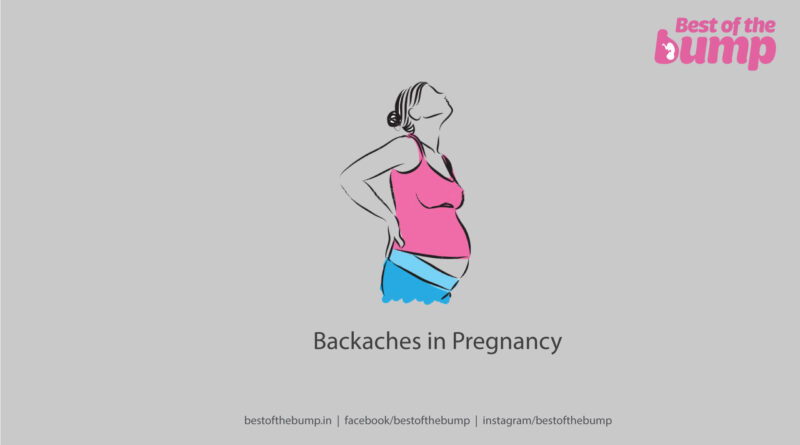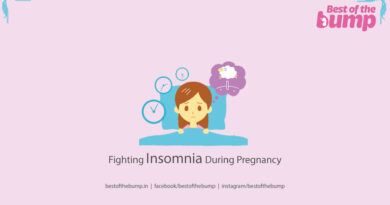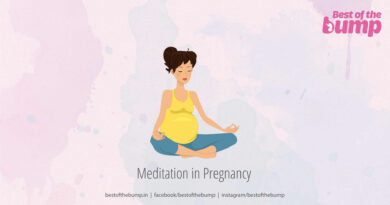Backaches in Pregnancy
Backaches in Pregnancy, pregnancy is a transformative journey that brings about numerous changes in a woman’s body, and one common discomfort many expectant mothers experience is back pain. As the weight of the growing baby and the physiological changes take place, the spine, pelvis, and back muscles undergo significant adjustments that can lead to discomfort. Understanding the causes and implementing effective strategies can help pregnant women navigate backaches and find relief during this remarkable phase of life.
The Prevalence of Back Pain in Pregnancy

Backaches in Pregnancy, back pain is a prevalent issue during pregnancy, with studies suggesting that between 50 to 70 percent of expectant mothers experience backaches at some point. The growing weight of the baby and the uterus places pressure on the spine, blood vessels, and nerves in the pelvis and back, resulting in varying degrees of discomfort and pain.
Causes of Back Pain During Pregnancy
Multiple factors contribute to the onset of back pain during pregnancy, making it a complex and multifaceted issue.
Hormonal Changes
Backaches in Pregnancy, the surge in hormones during pregnancy, such as relaxin, causes the ligaments in the pelvic area to soften and the joints to become more flexible. While this process is crucial for childbirth, the resulting shift in joints and loosening of ligaments can compromise the usual support the back receives, leading to pain.
Altered Center of Gravity
As the baby grows, the mother’s center of gravity shifts, leading to changes in posture to accommodate the changing weight distribution. This change in posture can strain the back muscles, resulting in discomfort.
Poor Posture and Strain
Factors like poor posture, excessive standing, bending over, or lifting heavy objects can exacerbate back pain. These actions put additional stress on the muscles and ligaments supporting the back.
Emotional Stress
Pregnancy is a time of emotional flux, and periods of stress can manifest physically as increased muscle tension and heightened back pain.
Managing Back Pain During Pregnancy
Managing backaches during pregnancy requires a combination of lifestyle adjustments, exercises, and mindful practices to alleviate discomfort and enhance well-being.
Exercise with Guidance
Backaches in Pregnancy, engaging in regular, low-impact exercises can help strengthen the muscles supporting the back and abdomen. Consult your healthcare provider before starting any exercise routine to ensure it’s safe for your specific situation.
Lifting and Bending Techniques
To reduce strain on the back, opt for squatting instead of bending over when picking up objects. This minimizes pressure on the spine and supporting muscles.
Supportive Footwear
Backaches in Pregnancy, wearing supportive footwear is crucial during pregnancy to alleviate backaches. Shoes with proper arch support distribute weight evenly, reducing strain on the back. Opting for comfortable and well-fitting footwear can contribute to better posture and minimize discomfort, allowing expectant mothers to navigate the journey with less back pain.
Sleeping Position

For backaches in Pregnancy, choosing the right sleeping position is crucial to alleviate backaches. Sleeping on your left side is generally recommended as it improves blood circulation to both you and your baby while reducing pressure on your back and major blood vessels. This position also aids in kidney function and digestion. Placing a pillow between your knees and another under your abdomen can provide additional support and comfort. Avoid sleeping on your back for extended periods, especially in the later stages of pregnancy, as it can lead to backaches, breathing difficulties, and reduced blood flow. Prioritizing a comfortable sleeping posture contributes to better rest and reduced back discomfort.
Supportive Measures
Backaches in Pregnancy, consider using a support belt under your lower abdomen to provide additional support and relieve pressure on your back. Rest and elevation of the feet during breaks can also alleviate discomfort.
Cold or Hot Packs
Backaches in Pregnancy, cold or hot packs can provide effective relief from backaches during pregnancy. Applying a cold pack to the affected area can help reduce inflammation and numb the area, providing temporary pain relief. On the other hand, a warm pack can relax tense muscles and improve blood circulation, soothing discomfort. It’s important to use these packs in moderation and ensure they are not too hot or cold to avoid skin irritation. Consult with your healthcare provider before using these packs to ensure they are safe and appropriate for your specific situation.
Yoga and Warm Baths
Backaches in Pregnancy, pregnancy-related backaches can find relief through gentle yoga and warm baths. Prenatal yoga helps strengthen muscles and improve flexibility, easing the strain on the back. Modified poses cater to a pregnant body’s needs, offering comfort and relaxation. Additionally, warm baths can alleviate muscle tension and provide soothing respite. The warm water eases soreness and encourages relaxation, benefiting both body and mind. It’s essential to ensure any chosen yoga routine and bath temperature align with your healthcare provider’s recommendations for a safe and rejuvenating experience during this transformative phase.
Proper Rest (Backaches in Pregnancy)
Backaches in Pregnancy, proper rest is a vital component in managing backaches during pregnancy. As your body undergoes significant changes, allowing it time to recuperate is essential. Ensure you prioritize restful periods throughout the day and incorporate breaks to ease any strain on your back muscles. Choose comfortable sleeping positions, such as lying on your left side, to minimize pressure on the spine. Elevating your legs and using supportive pillows can further enhance your comfort. By providing your body with the rest it needs, you can alleviate back pain and contribute to a more comfortable and enjoyable pregnancy journey.
Embracing Comfort During Pregnancy
Backaches in Pregnancy, experiencing backaches during pregnancy is a common and natural part of the journey. By understanding the underlying causes and implementing suitable strategies, expectant mothers can find relief and enhance their overall well-being. Consultation with a healthcare provider is vital to tailor interventions to individual needs and ensure the safety of both the mother and the baby. Remember that every pregnancy is unique, so it’s crucial to listen to your body, prioritize self-care, and seek professional guidance if back pain persists or becomes severe. With a holistic approach and nurturing practices, you can navigate this transformative period with greater comfort and joy.




